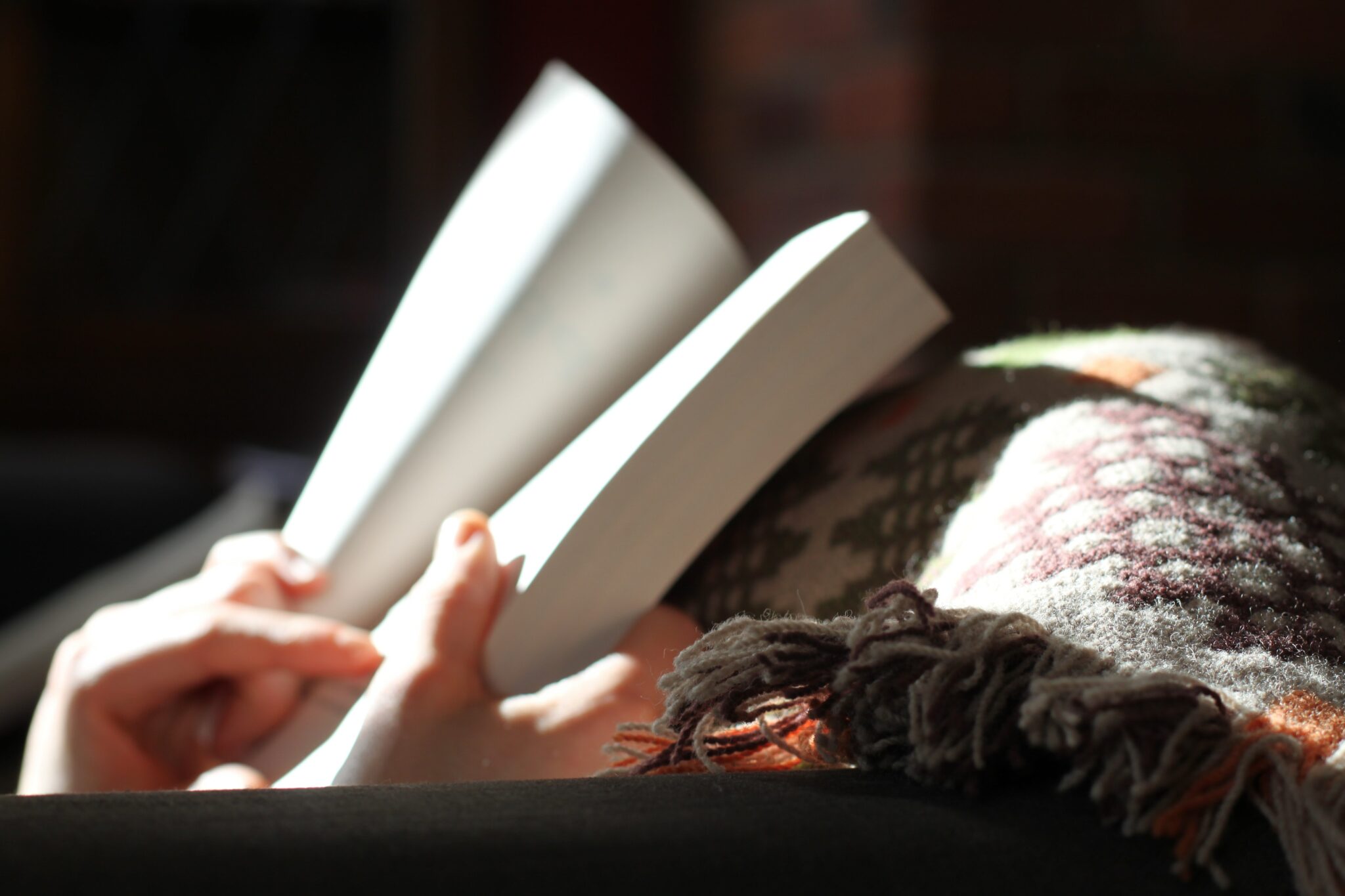
At a time of isolation when our minds are crowded with the noise of a thousand thoughts and worries, poems can be a place of settle and of focus, says writer, director and The Poetry Exchange founder Fiona Bennett.
‘the truths of outrage and the truths of possibility’ – Muriel Rukeyser
Whilst the enforced pause brought on by Covid19 may have allowed some of us to experience brief moments of being with Wordsworth’s ‘inward eye that is the bliss of solitude’, it has also been a time of trauma. Each person is dealing with their own unique pressures, anxieties, griefs and demands. Days are offering a strange and sometimes vicious cocktail of stillness and quiet accompanied by emotional and information overload and for essential workers, whose commitment and courage continues to astound us daily, long ‘front-line’ hours more demanding than anyone could have imagined. Within this, some of us have been blessed enough at times, in small moments, to find poetry arriving like the birdsong coming clearer.
Isolation can produce both the void of silence from which a poem emerges but also bring on an unexpected and inescapable amount of noise in the head — deprived of company, our thoughts jangle inside us and with the added physical constraint of lockdown, they have nowhere to go. In this condition, poems offer us the organising space of words set down according to rules of rhythm, sound and breath. They can be a place of settle, of focus, where we can close the door of now and next and open one to a deeper, rhythmic time.
With their capacity to utter, as Muriel Rukeyser described, ‘the truths of outrage and the truths of possibility’, poets and poems have been able to meet the stretch of need I’ve felt in the isolation of Covid19. They have been with me both in the mirco-world of self-isolation and the macro context of global pandemic. They have provided me with the company I have needed to be present with the difficult feelings and questions, to offer the relief of a moment of beauty, and to be transported to other places and perspectives where I can experience a different way of looking at things.
[Poems] can be a place of settle, of focus, where we can close the door of now and next and open one to a deeper, rhythmic time
Some of these companions have been the new poems being written now, such as Jackie Kay’s weekly poem, and some have been found on my shelves. It’s been interesting to see which volumes I’ve reached for as fragments of poems have entered my consciousness, offering their company as I’ve paced the floors of lockdown. Sometimes a single image from a poem so vivid and startling, has swum into my mind’s eye and I’ve reached for the volume where it lies in a handful of words on the page: ‘Sky dappled like / fig flesh, that gentle / dying light.’ (Hala Alyan, Four Cities).
Like many people I’ve been asking myself what more I can do, whether doing the odd shop for a vulnerable neighbour is really enough – Muriel Rukeyser’s poem ‘The Calling’ has been a conversation I’ve returned to as the lens has been brought up close on questions of purpose. Adrienne Rich has offered me the kind of company I sometimes need in the small hours, drink in hand at the kitchen table, grappling with the scale of things: ‘this is not somewhere else but here, / our country moving closer to its own truth and dread’ (‘What Kind of Times are These?’ from Dark Fields of the Republic).
Poems of meditation and reflection have also been there. Wallace Stevens, Emily Dickinson, Maitreyabandhu and if the longing for a trip to the pub or a party gets too much I can always read Philip Larkin’s ‘Vers de Societe‘ and remind myself that socialising isn’t always all it’s cracked up to be!
Poems can be portals to other worlds and other times, escape hatches not just to a sense of location but to a physical experience of it
Poems can be portals to other worlds and other times, escape hatches not just to a sense of location but to a physical experience of it. I’ve had an immense longing for water and the sea. Through the portal of a poem I’ve experienced water as ‘Blessing’ with Imtiaz Dharker, headed loch-side with Kathleen Jamie, walked down to the ‘The Brittle Sea’ with Paul Henry, picked up a boat among ‘The White Egrets’ thanks to Derek Walcott and dived into the waves with Pablo Neruda. I have also headed beneath the surface of the sea and the history it holds with Richard Georges’ astonishingly moving collection, Make Us All Islands.
Most of all I have been held by the rhythm and pulse of poetry, its heartbeat and its breath, its voice and presence. Poems can relieve isolation not just for what they express but for their very being, for the company they offer and the conversations they bring.
Fiona Bennett is a writer, director and creative tutor with a practice encompassing poetry, theatre, audio and applied arts. She is founder of the award-winning project and podcast The Poetry Exchange and co-director of The Map Consortium. Her poems have appeared in journals in the UK, USA, on BBC Radio and been commended in competitions including The Bridport Prize. She recently curated and directed the poetry of Adrienne Rich as part of a new ballet for Ballet Black. Website

This article was commissioned as part of City of Literature 2020 – a series of conversations, reflections and connections across one week in May. Presented by the National Centre for Writing and Norfolk & Norwich Festival.
You may also like...
How to improve your poetry: top tips for aspiring poets
Embarking on a new poem can feel like an intimidating task for any poet. In this article, we share our top tips and a creative writing exercise that will help you have fun with your poetry.

18th April 2024
Haunted from a distance
Joe Hedinger on the way that books have followed him throughout his life – and how this haunting has increased during the lockdown period

22nd May 2020
Re-forming reading habits during lockdown
How physical restrictions on movement can open up new freedoms in what, where, how and why you read

21st May 2020






